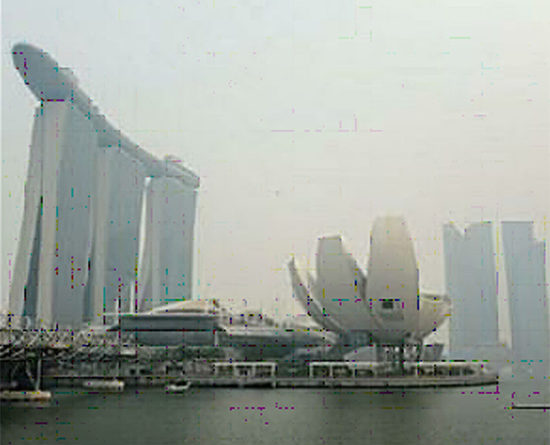Mattis, Modi In Singapore For Security Summit
Singapore (AFP) June 1, 2018
When US Defense Secretary Jim Mattis attends a security summit in Singapore this weekend, he hopes to assure allies of America’s commitment to the region and its aim of checking China’s seemingly inexorable rise.
But the issue the Pentagon chief may well be faced with most often is one he would prefer not to weigh in on: what on Earth will happen between North Korean leader Kim Jong Un and President Donald Trump?
Mattis, whose department has spent years refining military options against North Korea and its nuclear programme, wants to steer clear of speculation surrounding a possible meeting between the two leaders.
“We continue with the diplomatically-led campaign,” Mattis told reporters as he headed to the Shangri-La dialogue in Singapore, referring questions on the issue to the State Department.
Events between the US and North Korea have been evolving rapidly, after the mercurial Trump called off a historic summit with Kim, only to immediately reverse course.
The two men are now apparently back on track to meet in June, also in Singapore.
So, instead of focusing on the possible summit with North Korea, Mattis wants to push the message that Washington is steadfast in its backing of the Asia-Pacific region.
“All I am doing is saying we are unwavering in our focus out here and we are unapologetic about… standing with our allies and our partners,” Mattis said.
He tackled the same topic at Shangri-La a year ago, months after Trump took office with his “America First” agenda.
The president’s campaign rhetoric left allies fretting over whether the US would turn its back on Asia, where it has underwritten maritime security since the end of World War II.
– ‘Continued militarisation’ –
Murray Hiebert, a senior associate of the Southeast Asia Program at the Center for Strategic and International Studies in Washington, said Mattis’s pitch is a tougher sell this year.
Trump’s “on-again off-again threat of (tariffs) against China and his abrupt cancelling of the talks with (Kim) and then just as abruptly trying to schedule them again makes Trump’s administration appear highly erratic and unpredictable,” Hiebert told AFP.
And over the past year, he noted, China has continued its military build up in the disputed South China Sea, including landing bombers on Woody Island and deploying surface-to-air and anti-ship missiles on other contested features — ignoring Washington’s call for it not to do so.
“Mattis can probably still call China out for doing what Xi Jinping had promised China wouldn’t do, but this message will soon sound hollow,” Hiebert said.
The Pentagon last week rescinded its invitation to China to join maritime exercises in the Pacific over Beijing’s “continued militarisation” of the South China Sea, and the US military periodically conducts “freedom of navigation” operations to defy China’s territorial claims.
But overall, despite Washington’s warnings of China’s rising might, Beijing has faced few consequences for its military buildup in the region.
Trump has also given conflicting messages on global trade and imposing tariffs on Beijing, and experts warn the US is ceding leadership to China.
“Most countries in the region which are part of the global supply chain are anxious that they will be impacted by a trade war between China and the US,” Hiebert said.
Mattis is giving a speech Saturday but this year’s keynote is by Indian Prime Minister Narendra Modi, who is expected to outline India’s growing regional role.
The Pentagon is renaming its oldest and largest military command to reflect the growing importance of India and the Indian Ocean in US strategic thinking.
From now on, the storied US Pacific Command, or PACOM, will be known as the Indo-Pacific Command.
The name change is largely symbolic but in 2016 the United States designated India a “major defence partner” with the aim of improving military cooperation, increasing information-sharing and cutting red tape to ease defence deals.
“Given China’s assertiveness, India is seen as the only country that can, with the US, play a role in offsetting China’s pull because India also has issues with China,” Manoj Joshi, a distinguished fellow at the Delhi-based Observer Research Foundation, told AFP.
But what allies “will be looking for is practical measures, not mere slogans and declarations.”
Source: Spacewar

